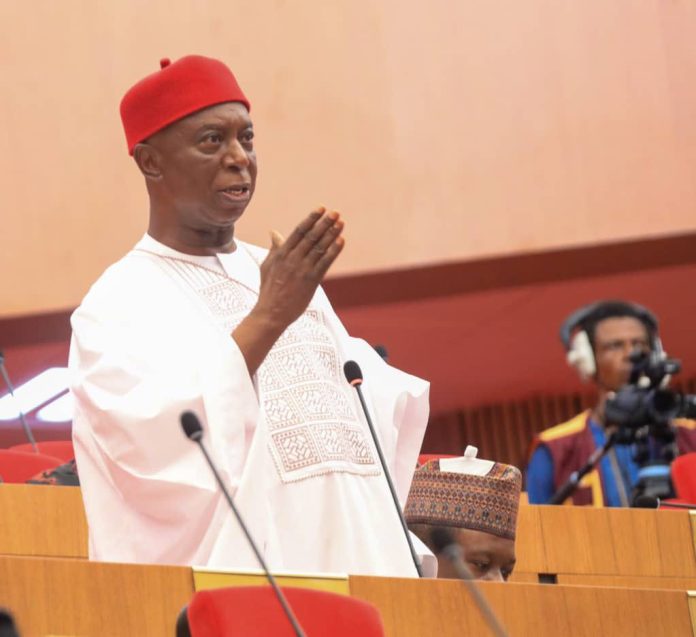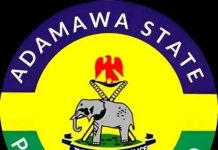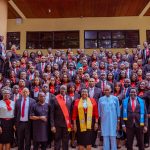…as Senate advances push to elevate it to University status
The Nigerian Senate witnessed a robust debate led by Senator Ned Munir Nwoko representing Delta North Senatorial District in the National Assembly (NASS), as he passionately argued for the passage of a Bill seeking the upgrade of the Federal College of Education (Technical) Asaba to the Federal University of Technology, Asaba (SB. 570), during today’s plenary session, Thursday, October 31.
Leading the debate, Senator Ned Nwoko asserted, “Nigeria’s growth and development in the 21st century hinge upon our ability to cultivate innovation, advance technology, and generate new knowledge. Our institutions of higher learning are crucial in shaping our future, especially through the production of cutting-edge research and development in the technology sector.
However, the current number of Federal Universities of Technology in Nigeria does not adequately meet the growing demand for comprehensive technological education.
“The existing Federal Universities of Technology in Akure, Minna, Owerri, Bauchi, and Yola have made commendable contributions to our national development. However, the South-South geopolitical zone of Nigeria remains without a dedicated Federal University of Technology.
This Bill seeks to rectify that gap by upgrading the Federal College of Education (Technical) Asaba—an institution with a rich history and proven foundation in technical education—to the Federal University of Technology, Asaba.”
He detailed that this upgrade is not merely a title change, but a “strategic and transformative step towards advancing technological education, research, and innovation.”
He stressed that technological institutions like this proposed university are essential for Nigeria’s growth, given the country’s increasing need for skilled manpower in science, technology, engineering, and mathematics (STEM) fields.
He lamented the South-South region’s lack of a dedicated Federal University of Technology and asserted that Asaba is ideally positioned to fill this gap due to its proximity to industrial hubs and economic centers like Onitsha and Port Harcourt.
According to Sen. Ned Nwoko, the college’s existing infrastructure and substantial student body of over 10,000 would enable this upgrade with minimal financial impact. He argued that this approach leverages the college’s existing resources and positions it to meet the high demand for technological education across Nigeria, particularly within the Delta region.
“This Bill does not propose establishing a new institution from the ground up,” he explained. “It seeks to unlock and expand the significant existing potential of the Federal College of Education (Technical) Asaba.”
The three other legislators, Sen. Ndubueze Patrick Chiwuba, Sen. Tony Nwoye, and Senator Joel-Onowakpo Thomas, who were called upon to share their views on the Bill voiced strong support for the Bill, commending its vision and the advantages it promises for the South-South region and the nation as a whole.
Each senator emphasized the urgent need to bridge the gap in technological education and affirmed that a university of technology in Asaba would create jobs, drive regional development, and provide a vital resource for Nigeria’s industries.
Deputy Senate President Barau Jibrin, who presided over Thursday’s plenary session, commended Senator Ned Nwoko’s dedication to the Bill and acknowledged its potential impact on the future of Nigerian education and industry.
He extended best wishes to Sen. Ned Nwoko for the continued success of the Bill.
Bill for an Act to amend the Federal Universities of Technology Act, Cap. F23, Laws of the Federation of Nigeria, 2004, to provide for the upgrade of the Federal College of Education (Technical) Asaba to the Federal University of Technology, Asaba, and for related matters (SB. 570), passed its first reading on October 2, 2024.

















